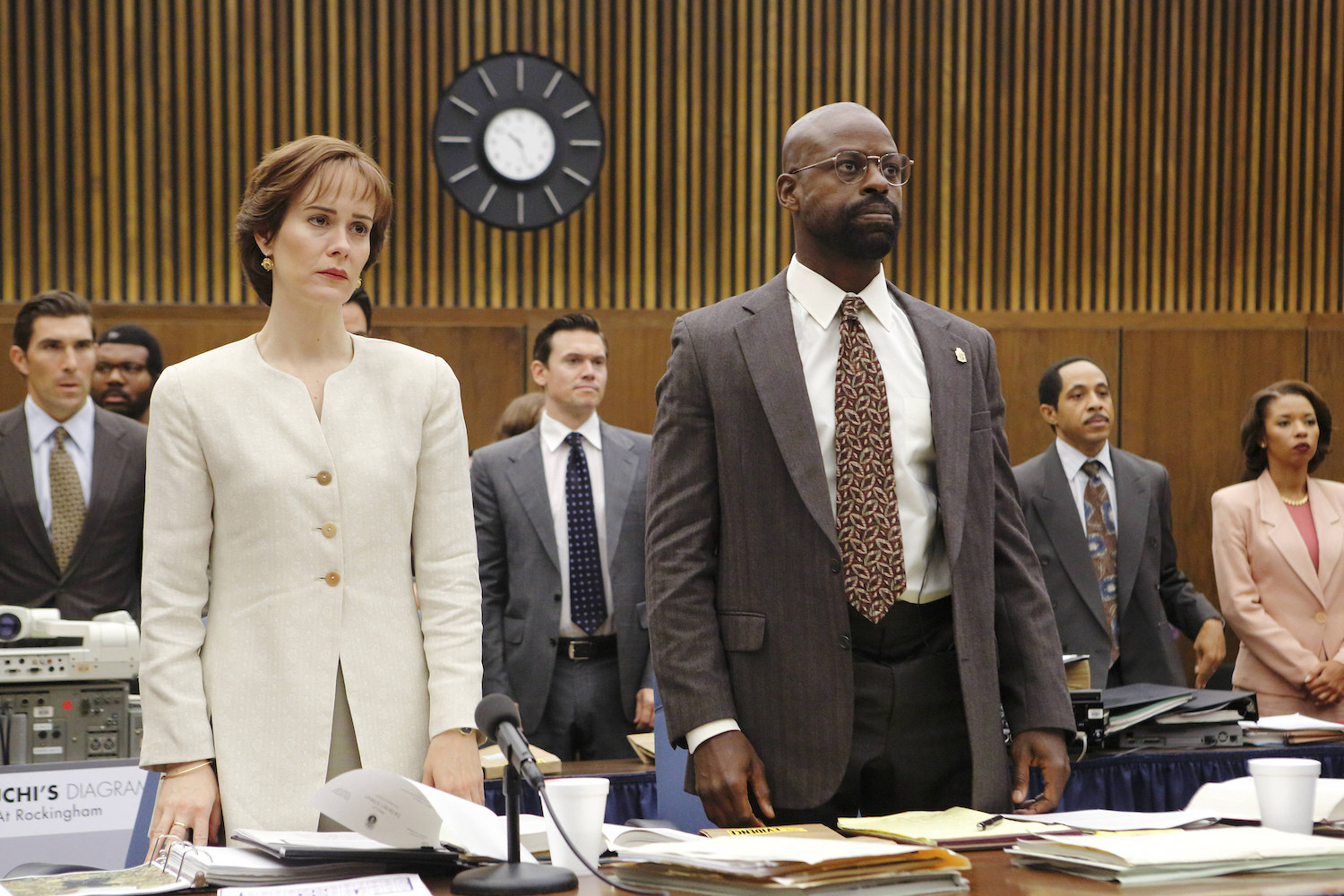Buzzfeed "Though The People v. O.J. Simpson: American Crime Story is set in the mid-’90s, its deep dive into the issues that still plague us today has made the series among the most topical shows of recent years. And with its racially diverse cast, writing staff, and mix of directors, it could also serve as a prototype for Hollywood, as the largely intractable industry finally begins to reform itself.
The Bronco chase. The gloves. The Mark Fuhrman tapes. The O.J. Simpson trial was so cinematic as it unfolded in real life, its story has for years seemed unsuited for fiction: Why bother, after all? . . ."
. . . "5. There was one person raising red flags about Fuhrman from the start: Darden. And no one listened to him.
As they contend with the Fuhrman fallout in “Manna From Heaven,” Darden explodes at Clark. “You put me on this trial because you wanted a black face,” he says. “But the truth is, you never wanted a black voice.”
“I hope we weren’t too on the nose for you,” Alexander said of that moment.
“Our show was very clear about it,” Karaszewski added. “Chris was put on the case because the DA’s office was afraid of Johnnie Cochran, and needed different ‘optics.’” Instead of turning the decision into a strength, Clark ignored Darden about his insistence that Fuhrman would hurt them.
"Toobin in his writing is critical of Darden’s skills as a trial lawyer, which reach their nadir when he gets Simpson to put on the gloves (against Clark’s orders). When writing the character, Karaszewski and Alexander wanted it to come across that Darden was both out of practice in court and in over his head in a trial of this scale. It proved to be hard to find an actor who could exude earnestness, compassion, and charm — especially with Clark — and also be somewhat weak in court. “It was, on paper, an impossible part to play,” Alexander said. “Larry and I kept calling him Charlie Brown in the first couple of episodes, because he’s just this sad sack who hates his job and doesn’t want to work there.' ”





